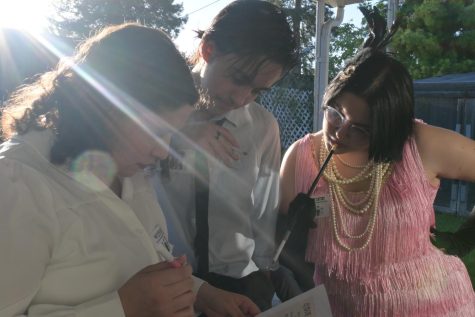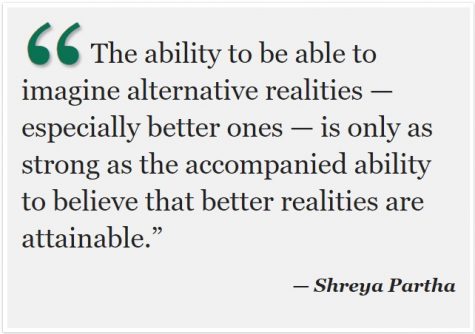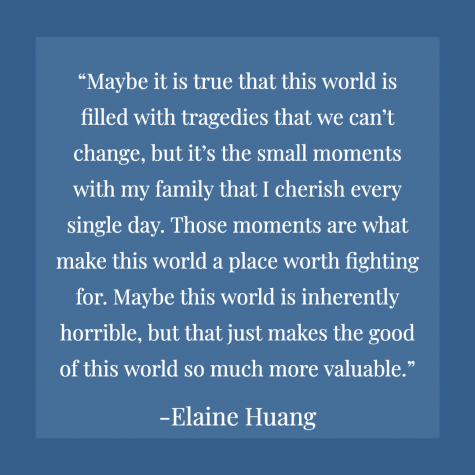From my POV: Dear quiet people
Quiet people are quiet for different reasons. Some people suffer from anxiety that lead to their unconsented stifled voice. Some simply may not desire to talk. Others are somewhere in between, a blend of factors defining their quietness — the quiet being a part of their nature.
My quietness falls in between an accumulation of shyness, introversion and irrational insecurity of others not being interested in what I say. This quiet nature of mine never seemed to mix well with the school environment, especially high school.
As I will soon be graduating, I began to reflect on my high school experience. These four years are supposedly to be some of the best in life, though that cliche never rang true to me. Being quiet has been a constant obstacle. Although my skills in facing those obstacles have improved over time, quietness continues to hinder me in many forms.
When it came to interacting with teachers, raising my hand in class or getting to know my tablemates, I would sit, itching for enough courage to take action until it was a year too late. I would wonder how to make friends when everyone appeared indifferent. The quietness extended outside of school, where I barely made an effort to be social and instead, retreated back in my shell where it felt safe.
I had spent a long time being comfortable in my own skin when no one was around, with the exception of family. As time went by, I found that the underlying issue to the negative daily occurrences in my social world was not being comfortable as myself around others.
I would beat myself up and feed myself toxic thoughts. “Why is it so hard for me, but not everyone else?” “Why do my words get caught in my throat and why do I let it discourage me?” “It it even possible to get past this?”
Growing tired of the way I felt, I made conscious efforts to make interaction and socializing easier.
I challenged myself. In situations where I usually let silence stand, I took initiative. I said “hi” — just a simple “hi.” I waved to peers in the hallways. I asked people to hang out outside of school. Many of these resulted in no response, but with physical practice of speaking up, it became easier and fear ebbed away with the familiarity of learning to accept social rejection.
I asked questions. Usually on the listening side of an exchange, asking questions made it easier to keep a conversation going. I could get to know the other person by not saying much. If the other person was kind enough, they would ask questions about me as well, and making conversation would not be as scary.
I held on to my values. Even if I often remained silent, was easily forgotten or got skipped over in a circle of people, I did not let anyone take away the respect I deserved. If anything, the neglect I received was irksome enough to make me break out my shell.
To those who may struggle with the word “quiet” hovering over their head or sitting in their hearts, remember that it is okay to be the way you are. It is okay to be quiet. The skills in speaking up help the words longed to be spoken to not be suppressed any longer. As natural as quietness may feel for some, humans are also known to be social animals.
Maintaining your quietness is always acceptable as a sense of comfort and essence of personality. Being quiet does not make you any less of an interesting person, but can be a veil to the character hidden underneath. At times, it might feel as though no one else feels as scared as you do and it feels like an obligation to conform to a world that does not stop talking. There must be a balance of facing your fear and being comfortable with exactly who you are.
It takes time to reach these moments of realization. No matter how many times you are told advice, no matter how many times you say you understand the lessons, it is not truly graspable until you experience them yourself.
To students still facing this amid their high school years, find refuge in this — you are not alone.












